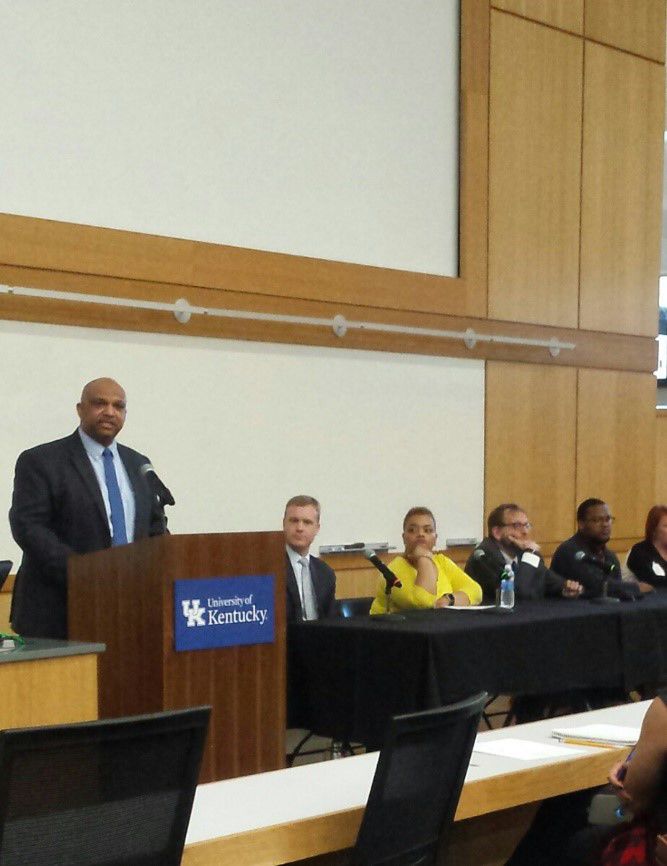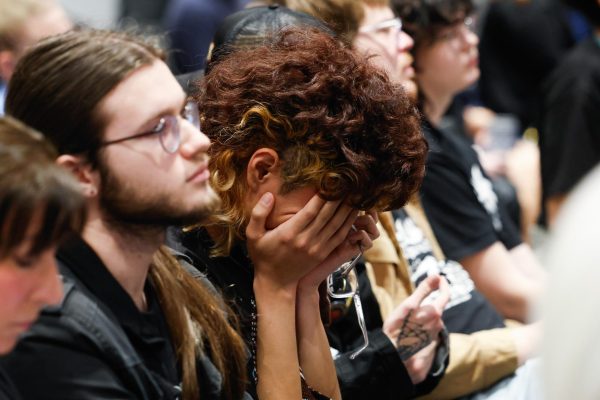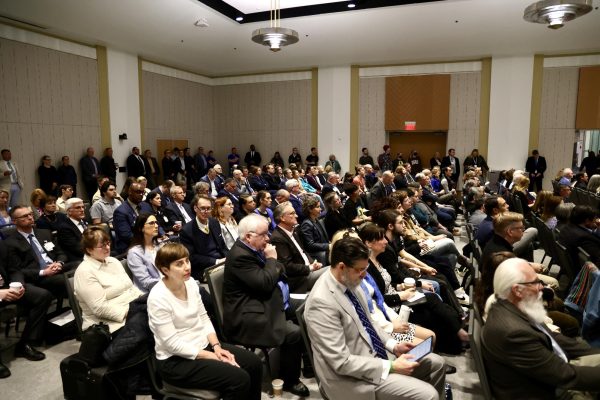Leaders, students talk on hate speech, First Amendment
Panelists at UK’s Free Speech vs. Hate Speech in the Jacobs Science Building on Tuesday, Feb. 20. Photo by Brandon Jent
February 21, 2018
Hate speech is protected by the First Amendment, but that doesn’t mean it comes without consequences, panelists said.
UK invited students, faculty and community members to attend a panel discussing freedom of speech and hate speech on Tuesday night. Seven panelists took center stage to speak about how UK deals with freedom of speech and how it affects the overall campus community.
The panel explained that most hate speech is protected by the First Amendment and this limits what the university can do to protect students and faculty from hate speech.
“The First Amendment doesn’t protect threats, harassment or speech that incites violence but not every word is a threat,” said panelist and UK general counsel Bill Thro. The university cannot stop people from saying hurtful things because it is free speech protected under the First Amendment.
UK does offer help to those students that experience hate speech through the Bias Incident Support Services. Carol Taylor-Shim, director of the Bias Incident Support Services, believes UK can do more to stop hate speech.
“I spend a lot of time with people who have been hurt but not enough time helping people not say hate speech,” Taylor-Shim said.
UK cannot punish hate speech, but it can condemn hate speech and its message. UK discourages hate speech by bringing up the consequences it can have.
“You have a right to say it but what will be the consequences of those words two to three years from now when you are looking at a job,” said Nick Kehrwald, Dean of Students.
Students on the panel, Brandon Colbert, Courtney Hart and Rory Barron, have all experienced the effect of hate speech first hand and know how it can hurt a campus community.
“It literally impacts every aspect of our lives,” Barron said.
All three students have dedicated time to helping other students deal with the effects of hate speech, but they want the university to take more responsibility.
“We should not be doing the university’s job as students,” Colbert said.
Panelists even shared stories of instances of hate speech that affect the campus environment. They were determined to shed light on the topic in hopes that it would start a conversation that would lead to change.
“This is an issue that is heavily mentioned, and I have personal experience with,” Barron said. “I wanted to break away from isolation and to help people understand that hate speech is not happening in a bubble.”
























































































































































